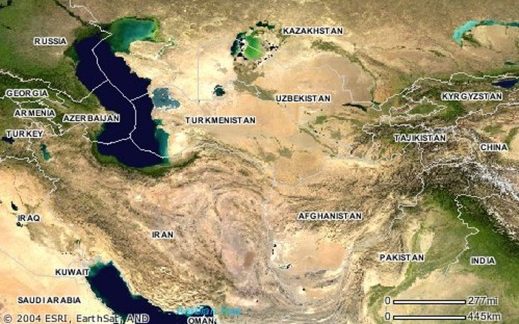Nowruz, the Iranian New Year festival, is the most outstanding Iranian festival. This long-standing tradition has incredibly ridden out storms. In an opinion piece published by Iran-e Farda in March 2015, Parviz Piran tried to look at this traditional festival as a geopolitical phenomenon and bring its untapped potential to attention. What appears below is a partial translation of his remarks that appeared in the magazine:
Nowruz, Festival of Joy
Almost all references on Nowruz unanimously suggest that this grand celebration dates back to before the Medes era, a time when our distant ancestors divided a year into two seasons: summer and winter.
The second most important Iranian festival after Nowruz is Mehregan. Nowruz ushers in the beginning of growth, greenness and work, while Mehregan marks the harvest season and the time when people brace themselves for the cold, rain and snowfall.
The love of ancient Iranians for joy was reflected in their traditions which brought them together. I believe their willingness to be happy and jubilant was intertwined with Nowruz. In fact, this festival which marks the turn of the year was deemed as a symbol of spiritual transformation, new outfits, gifts and children’s joyfulness.
Historical Bond Between Generations and Ethnicities
Another important aspect of Nowruz is that it was believed to be the time when the souls of the dead would reunite with them. Such a belief can establish a symbolic bond between generations, bringing back memories of past generations and therefore contribute to the reconstruction of the historical identity of all Iranian ethnicities.
Studies into ethnic cultures indicate that all Iranian ethnic groups, particularly the Kurds and the Azeris, have played a substantial role in shaping the popularity and durability of Nowruz.
This brief note about Nowruz is aimed at highlighting the untapped potential of Nowruz. If this potential went unheeded, like many other concepts, the material and spiritual culture of the Iranians would be hijacked and distorted.
Geopolitical Efforts to Eliminate Nowruz
I never imagined that a time would come when newly-formed governments would use politics to devise an utterly fabricated and distorted history for their own people and fill their minds with a great deal of animosity. That is evident in their constant efforts to eliminate the language of Farsi from their lives and deny the nations living not far beyond our borders the legacy that we share.
Such attempts are made as Farsi is as important to all regional ethnicities as English is to the Europeans. Elimination of Farsi will lead to exclusion of an important part of culture from the history of regional countries and thus will deal a heavy blow to history of the countries which are linked through the strong bonds of culture. Understanding this concept will shed light on the true position of the Iranian New Year festival, introducing it as a geopolitical and geostrategic phenomenon.
The unfulfilled potential of Nowruz should be reflected in Iran’s foreign policy and political culture. Nowruz could replace the extravagant events which have proved to be inefficient. I hope this brief analysis can pave the way for a dialog aimed at promoting peace and friendship in the region.
